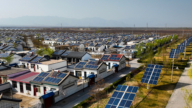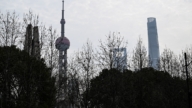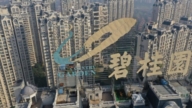【新唐人2013年09月16日訊】近期,中共總理李克強連續發表措辭強硬的講話,9天內4次談到經濟改革,在外界普遍對中國經濟將「硬著陸」而擔憂的情況下,尤為引人關注。經濟學者認為,中共當局持續的表態,正是目前中國經濟危機深陷,到了不得不改的地步後產生的條件反射。那麼,經濟改革的最大阻力在哪裏呢?分析指出,改革不涉及中共體制本身這個「利益集團」,將注定不能「治本」,阻力也越大。
李克強在9月11號,大連舉行的夏季「達沃斯」世界經濟論壇開幕儀式上強調,中國的改革大勢不可逆轉。
在此前一天,會見參加論壇的企業家時,李克強就表示,改革是觸動利益的事情,需要用壯士斷腕的決心推進,做到「言必行,行必果」。
9月9號,李克強在英國《金融時報》上撰文,承認目前中國經濟增長面臨的一系列發展困境和危機,以及必須深化社會、經濟改革的迫切性。
而在9月3號的東盟博覽會上,李克強又提出,必須著力釋放改革紅利。
短短9天之內,李克強已經連續4次就「經濟改革」發聲。
美國南卡羅萊納大學艾肯商學院教授謝田認為,目前中南海不停表態要推進經濟改革,正好說明目前中國的經濟模式不可持續,到了不得不改的地步。
美國南卡羅萊納大學艾肯商學院教授謝田:「這種經濟現狀非常危急,必須有所作為才能突破現在的困境。我們看到的不管是房地產的泡沫,通脹的問題,還有股市的問題,還有經濟增長放緩,再加上社會民怨沸騰,所有的社會問題現在歸集在一起實際上每個都在直接指向中共的政權本身。」
今年7月以來,李克強親自主抓、拍桌子定下的上海自貿區計劃遭到上海地方當局、銀監會、證監會等各個方面的反對,歷經波折後才得以落實。
《紐約時報》認為,「利益集團」的力量已經滲入到各個重要領域,來自他們的阻力和干涉會伴隨中國改革的每一步。
大陸經濟學家鄭先生:「最大的麻煩或者阻力不是在外部或者市場怎麼樣,也不在於老百姓,是在於既得利益和那些舊有制度的受惠者、舊有觀念的堅持者。主要阻力就來自於央企和地方政府。」
謝田則強調,利益集團恰恰就是中共體制的本身。
謝田:「實際上是中國的老百姓需要去動這個利益集團的奶酪,也恰恰就是中共這個利益集團把中國老百姓的奶酪和財富給搶走了。所以現在經濟改革,財富分配也好,如果不能夠觸及到中共既得利益集團本身的話,那實際上注定是不可能成功的,這個阻力也會越來越大。」
《德國之聲》去年曾指出,早在幾年前,中國社會學家就通過長期調研發現,中國億萬富翁90%是中共高幹子弟。報導披露,這些太子黨們活躍於金融界、外貿和房地產等領域,積纍了總共2萬億人民幣的財富。
鄭先生:「我們再也不能用維穩模式去持續性發展我們的經濟。會有越來越多受害者他們明白過來,他們會站出來說『你剝削壟斷我們這麼多年了,你還不知道自己最大的問題?』這是不以個人意志,或某個團隊、某個黨派的想法所左右的。」
時事評論員晴朗發表評論文章還指出,目前中國根本不存在經濟自由化的政治環境。他認為,在政改完全擱置,意識形態全面倒退,憲政和公民社會都遭到否定的氛圍下,李克強力推以經濟自由化為目標的「上海自貿區」,最終將注定是一場烏託邦的試驗。
謝田也認為,經濟改革只能在解體中共體制這個「利益集團」的前提下,才能真正的達到「治本」的目的。
採訪/常春 編輯/李明飛 後製/李智遠
Li Keqiang Faces Obstacles in China’s Economic Reform
Premier Li Keqiang has pledged economic reform
on four occasions during the past nine days.
Among the concerns for China’s economic “hard
landing,” his talk signals China is facing a crisis.
Experts believe it reflects economic reform is necessary.
However, what are the obstacles to economic reform?
Analysis suggests that as long as the Communist regime
remains untouched, the obstacles will continue to exist.
Li Keqiang pledged to push ahead economic reforms on
September 11 at the World Economic Forum in Dalian.
Li Keqiang emphasized reform is a must,
and risk will be guarded during a meeting
of entrepreneurs a day before the forum.
On September 9, an article was published in the
Financial Times, where Li Keqiang admitted that
among economic difficulties, China is in need of a
complex process of economic and social change.
At a China-ASEAN Expo on September 3rd,
Li Keqiang proposed reforms must focus on
unleashing dividends from reform initiatives.
In 9 days, Li Keqiang spoke four
times about economic reforms.
Professor Xie Tian, of the University of South Carolina
Aiken believes Zhongnanhai urging economic reform
suggests China’s economic model must change.
Professor Xie Tian, University of South Carolina-Aiken:
“The economy is at a critical point and must be changed.
Everything is pointing at the Communist regime.
Everything from the real estate bubble, inflation,
stock markets, slow economy, to social chaos.”
Shanghai’s free-trade zone was pioneered by Li Keqiang.
Since July, it has met multiple oppositions, including
local authorities, China Banking Regulatory Commission,
and China Securities Regulatory Commission.
A media says that interest groups have penetrated deep
into the regime, and are the main resistance to these reforms.
Cheng, Chinese economist: “The main trouble or resistance
does not exist in the market or with the ordinary people.
Rather, it is the vested interest groups,
beneficiaries, and adherents of the system.
The main resistance actually comes from the
state-owned enterprises and local governments.”
Xie Tian stresses that the Chinese Communist regime
itself is the very interest group that is the problem.
Xie Tian: “In fact, it is the Chinese people
who need to be involved in the economy.
The Communist regime is the interest group
who robbed the economy from the people.
Be it economic reform or wealth
distribution, it is doomed to fail.
As long as the regime remains untouched,
resistance will only grow stronger.”
Deutsche Welle reported last year that offspring
of CCP cadres form 90% of Chinese billionaires.
These princelings occupy the financial sector, trade and
real estate, and have a total wealth of two trillion RMB.
Cheng: “The economy can no longer
develop under the maintaining stability model.
People will realize that they have been exploited for all
these years and the regime is the problem of the economy.
No individual or party will be able to fool them any longer.”
Commentator Qing Lang indicated in an article that
China’s political environment allows no free economy.
Political reform has idled, and the regime
lacks ideology, constitution, and civilization.
He believes Li Keqiang’s Shanghai Free
Trade Zone is simply a utopian test.
Xie Tian points out that economic reform will only
happen when the Communist regime has ended.




























